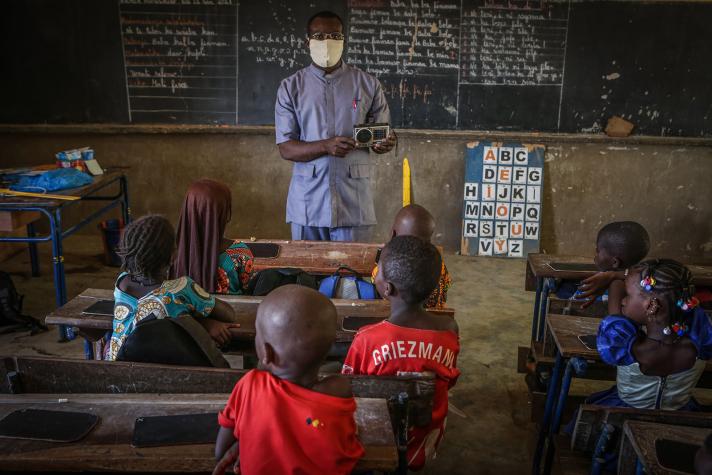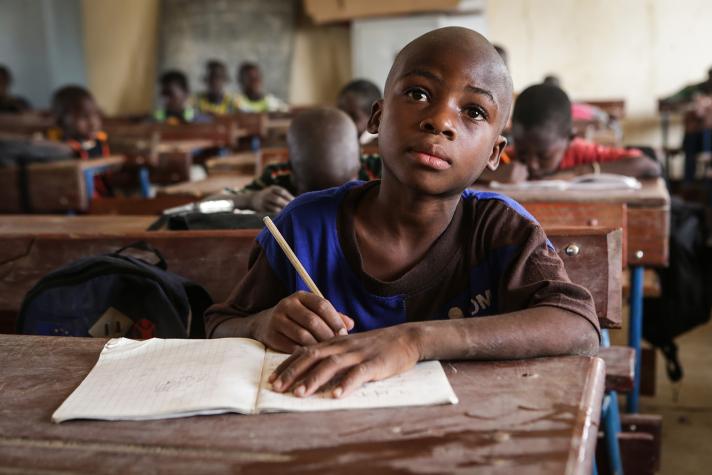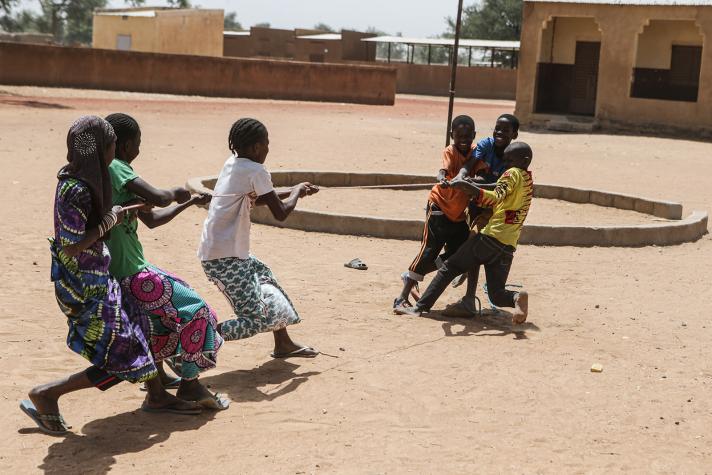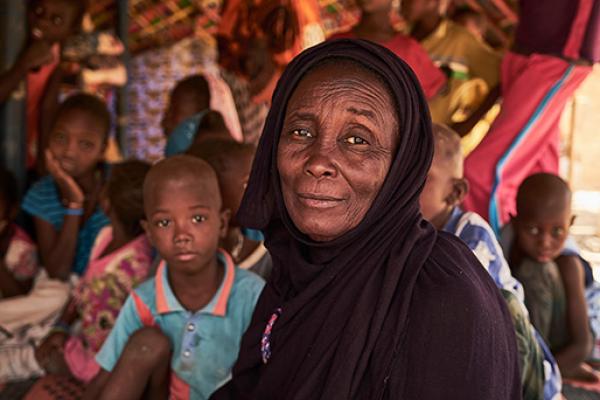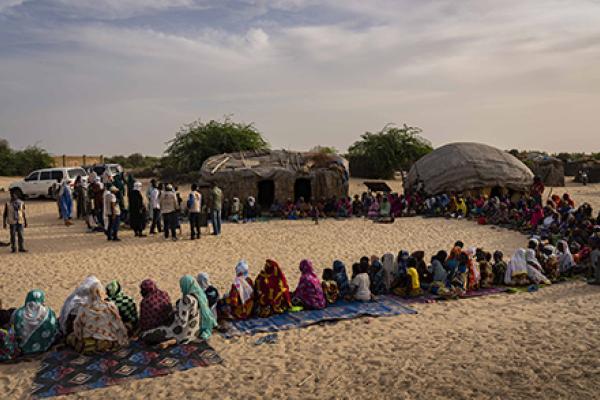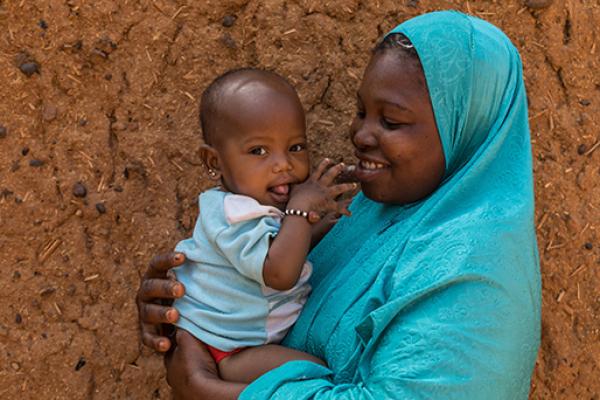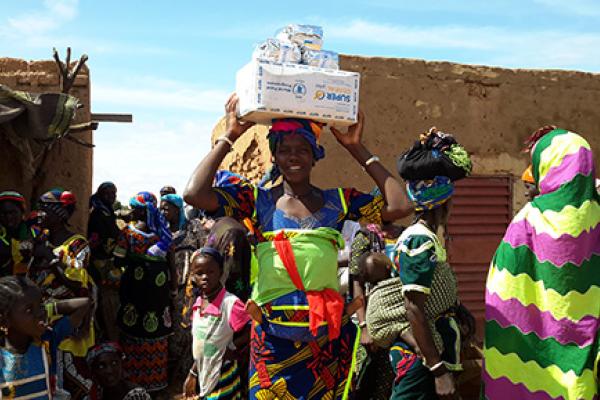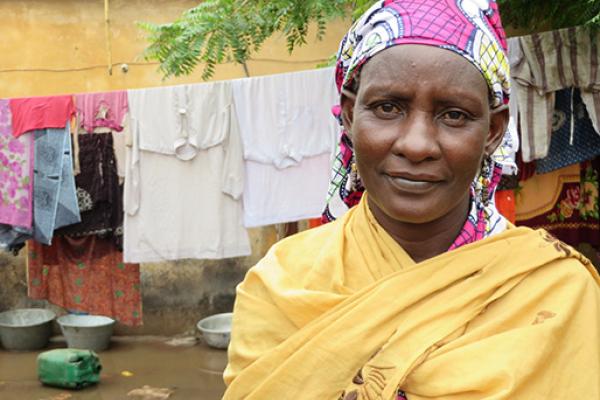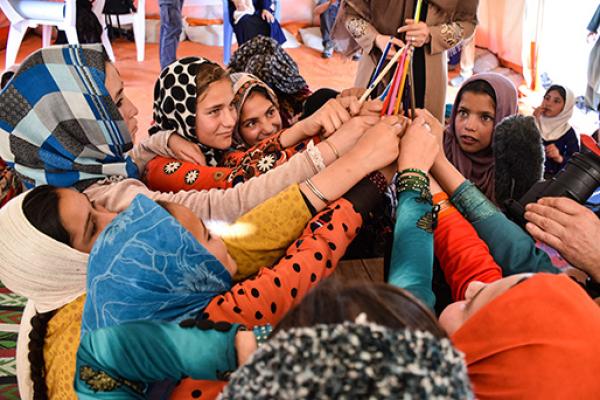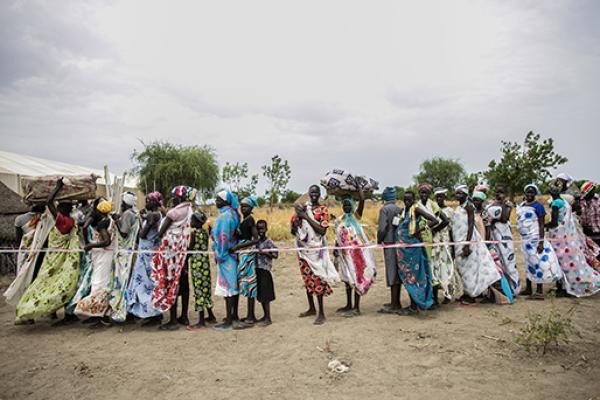"One market day, armed individuals broke into our village. They captured my father and killed him. We fled to Djenné. I fear that these people will come back, and I cry.”
This is what happened to Hamadi, a 12-year-old now displaced in Djenné, Mali.
Like other children his age, Hamadi has the right to education, protection and well-being for harmonious development. In the Sahel, the EU and Save the Children provide mental health and psychosocial support for children affected by violence.
“Sometimes the army is not there to protect us. I received support from EU project workers and a facilitator so that I could be less anxious. Now I don't think about it when I sleep,” he explains.
There are many stories similar to Hamadi's in the crisis-affected areas of the Sahel. Indeed, targeted attacks on schools, students and teachers have become common, affecting children's mental health and education.
Persistent and increasing insecurity in the central Sahel has displaced more than 900,000 children. Direct attacks on education have increased. Today, more than 7,000 schools are closed in Mali, Niger and Burkina Faso.
Many children in the region no longer go to school. Indeed, numerous schools are occupied by armed groups or destroyed and no longer offer protection in many areas.
These children are then exposed to insecurity, and their future becomes uncertain. They are exposed to risks of abuse, abduction, forced labour, early marriage or recruitment by armed groups.
Addressing children’s needs
Since July 2020, an emergency education programme integrating child protection and mental health and psychosocial support has been launched in Niger, Burkina Faso and Mali.
These opportunities to launch integrated humanitarian responses must be multiplied to meet the critical needs of the populations affected by the crises in the Sahel.
Thanks to this programme, Hamadi is currently enrolled in a learning programme alongside many Malian boys and girls.
In Djenné (Mali), where Hamadi now lives, as in several crisis zones in the Sahel, there is an urgent need to find mechanisms for rapid assistance to children who have psychosocial distress due to conflict, forced displacement and school drop-out.
The EU has partnered with Save the Children to address the learning, safety and mental health needs of children in Burkina Faso, Mali and Niger. The pilot partnership programme funded by EU humanitarian aid provides a rapid and continuous integrated response in education, protection, mental health and psychosocial support for children in emergencies.
In towns such as Djenné in Mali, Dori in Burkina Faso and Téra in Niger, many schools host children displaced by the violence. The EU-funded project provides them with the necessary resources to study and develop in a protective environment that respects their well-being.
In 2022, Save the Children is supporting 176 schools in the 3 countries for over 130,000 children, including around 42,000 internally displaced ones. They distribute school materials to facilitate the learning of affected children. Next year, our partner will support 86 schools hosting 38,000 pupils, including 16,000 displaced children.
Helping displaced children
To better meet the needs of children affected by forced displacement, the programme rolls out a rapid response initiative that supports their protection, well-being and education.
Through the Integrated Rapid Response for Children, Save the Children enables thousands of children to be cared for in safe and protective learning spaces within 3 months after the displacement and helps them to reintegrate into formal school.
This approach is implemented by multi-disciplinary mobile teams and recreational facilitators. These mobile teams are composed of trained psychological first aid workers whose role is to assist children, parents and tutors in distress, help identify their immediate needs and facilitate their access to essential and specialised services.
The facilitators are drawn from the local communities. They are trained and supported by the programme’s social workers and mental health and psychosocial support specialists to better detect signs of psychosocial distress. This includes feelings of anxiety, fear, sadness, confusion, lack of concentration, and behavioural changes such as aggression and isolation.
In Djenné, such a programme gives a glimmer of hope to Hamadi, and many other children supported through formal and non-formal education.
Ultimately, in all 3 countries, the programme aims to support 169,000 boys and girls living in camps for internally displaced people and host communities and enable them to access quality, continued learning and mental health support in safe and protective environments.
Story by Ali Thienou, Communications and Advocacy Officer, Save the Children Mali.
Publication date: 08/11/2022

